Entrepreneurship
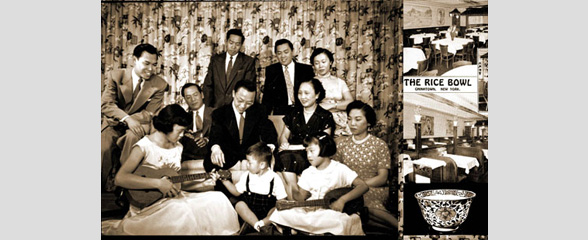
2013.022.006 Oral History Interview with Marcella Dear
Marcella Dear, a longtime friend of MOCA and a generous donor of over 900 objects, joins us to discuss her exciting life and her memories of Chinatown. Marcella goes into depth about many of the objects she donated, and discusses not only their significance as sentimental objects but also how these objects were used in their original setting, at the Rice Bowl restaurant on Mott Street. Marcellas father founded the Rice Bowl, and she discusses her childhood growing up in and around the restaurant. She fondly remembers her regular clients, who came to feel like family to her over the years. She talks about her father and his eminent role within the community, both when she was growing up and afterwards. She remembers how he wanted to build a museum to house all of his collections and to share cultural treasures with the Chinatown community. She talks about how Chinatown has changed, and about how the immigrant experience has also changed. She discusses the importance of the neighborhood associations in helping new immigrants with paperwork in English and by helping them acclimate to life in the U.S. Marcella talks about her life as a young person, going to college at NYU and having parties and socials for the Chinese students at NYU and the neighboring city schools. Marcella briefly discusses the gang wars and the impact this had on the neighborhood. She ends her interview talking about memorable places in Chinatown and what they mean to her.
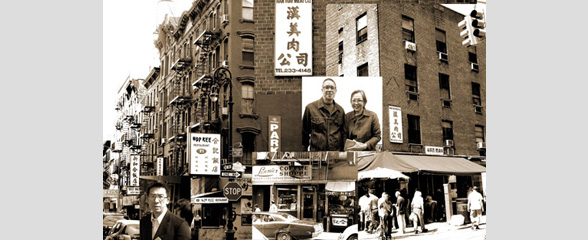
2013.022.008 Oral History Interview with Pamela and Tom Lee
In this oral history husband and wife Tom and Pamela Lee share their experiences living and working in New York Chinatown. Tom and Pamela discuss their childhoods and how they came to live in New York. They both reflect on working at the butcher shop owned by his family. Tom also discusses the farm his father operated along with the tasks his mother completed at their family business. The couple also contemplates how Chinatown has changed over many decades and the cultural differences each generation of Chinese Americans experience.
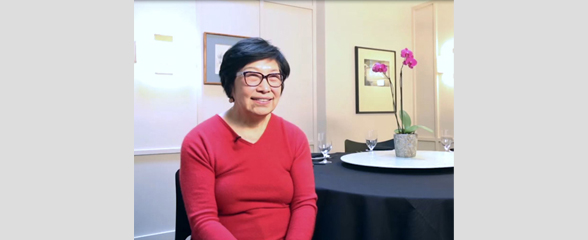
2016.037.009 Oral History Interview with Susana Foo 2015/07/09
Susanna Foo talks to MOCA about moving from place to place during her childhood in China as well as during her adulthood in the United States. She discusses attending school and working as a librarian before developing an interest in cooking which led her to become a chef. She shares her experiences at her familys struggling restaurant and how her studies at the Culinary Institute of America helped her turn it around and ultimately led to her opening another restaurant and even writing her own cookbooks. She concludes by sharing her thoughts on the importance of Chinese food to Chinese culture and the diverse influences that have formed her own eclectic cooking style.
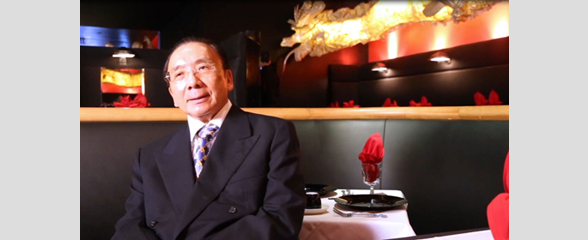
2016.037.022 Oral History Interview with Michael Tong 2016/03/11
Michael Tong describes his path from his birth of Anhui to becoming one of the most successful restaurateurs in New York City with two four-star restaurants. Moving first to Shanghai and Hong Kong before settling in the US, Mr. Tong studied civil engineering but chose to work in a NYC restaurant after graduation. From there, he opened up two restaurants, Shun Lee Palace and Shun Lee West, where he developed his love for different Chinese cuisines and helped bring Sichuan and Hunanese food to New York and the US. Tune in to hear his thoughts on what makes certain Chinese food authentic and his view of how Chinese food and American tastes have changed since the 1970s.
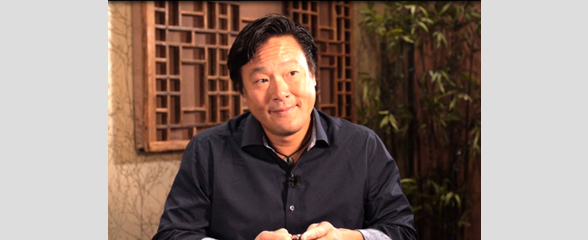
2016.037.023 Oral History Interview with Ming Tsai 2015/10/19
Ming Tsai talks with MOCA about his lifelong relationship with food and how he came to be one of the most successful East-West fusion chefs. Listen in as Ming explains the role that food and cooking played in his early life growing up around his grandparents in a Chinese-American household and visiting Taiwan. Despite going to Yale for a degree in engineering, he ultimately decided to become a chef, and after working in several famous French kitchens and culinary schools, he pursued a hospitality degree at Cornell which launched him into hotel management. He eventually followed his dream of becoming a chef-owner at his own restaurant, Blue Ginger. Throughout the discussion, Ming weaves in beautiful anecdotes about food and his philosophy of how to blend cuisines successfully. He concludes his discussion with his thoughts on the importance of charity in his life and his experience using food for diplomacy.
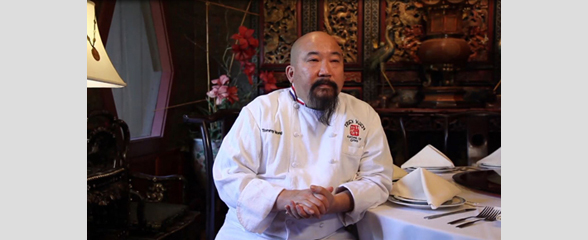
2016.037.026 Oral History Interview with Tommy and Frank Wong
Tommy and Frank Wong discuss their experience coming to America from Hong Kong with their three brothers and working in a variety of restaurants before starting their own. The brothers lived across the US in Texas, Kansas, and San Francisco until they started their own restaurant in New Orleans. Tommy offers an interesting explanation of the history of Chinese food in America as well as how he worked to blend the styles and flavors of Chinese and Louisiana cuisine into what he considers to be the highlights of both. Frank similarly offers some recipes and explains the influence of local Louisiana cuisine on his cooking. He concludes by discussing some of his familys charity work and urging Chinese restaurants to be supportive of one another and not be too competitive.
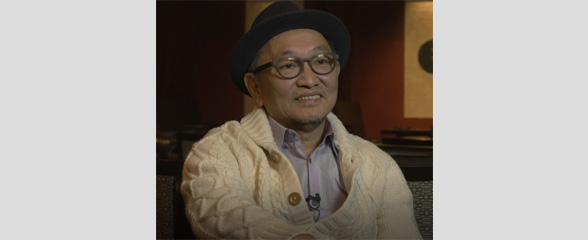
2016.037.031 Oral History Interview with Chris Yeo
Chris Yeo sits down with MOCA to talk about his experience leaving Singapore and coming to the US where he opened a series of successful restaurants. He explains his journey from opening a salon to becoming a restaurateur and several of the things that hes learned about cooking for American patrons. He discusses his family and how his cooking stems from a desire to please people. Chris also shares some anecdotes about his experience on Food Network and speaking at the Smithsonian institute.